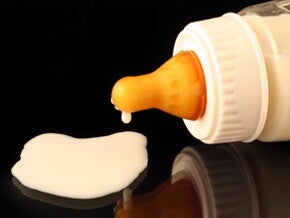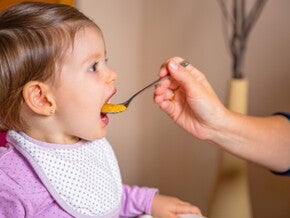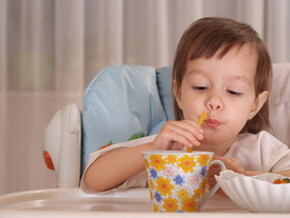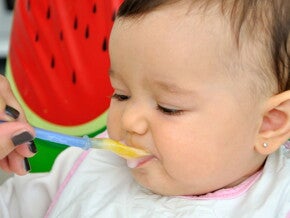
How To Deal With Toddler Vomit?
Treating Vomiting In Toddlers
IMPORTANT NOTICE: The World Health Organization (WHO) recommends exclusive breastfeeding for the first 6 months and continued breastfeeding for as long as possible. Growing up milks are formulated to meet nutrition needs of healthy young children older than 1 year and should not be fed to infants.
Vomiting is not a disease, but rather is a symptom of various conditions, such as viral infection, fever, diarrhea, ear infection, bronchitis and urinary infection.
Vomiting can be controlled by natural home remedies until the toddler has fully recovered from the illness that is causing it.
Let’s have a quick look at the most common treatments often prescribed for kids with repeated bouts of vomiting:
- Don’t feed your child solids and don’t force him to eat if he doesn’t want to. Eating and drinking can make nausea and stomach inflammation worse.
- Offer your tot oral rehydration solution that contains the right combination of salt, sugar, potassium and other nutrients, to restore the fluids he has lost from vomiting and protect him from dehydration.
- Keep on preventing your toddler from eating until he stops vomiting for 12 hours. Have him drink small but frequent sips of clear liquids to keep him replenished.
- Stay away from fruit juices and soft drinks that are high in sugar, as they can upset your tots’ stomach.
- Let your child suck on ice cubes or a clean washcloth soaked in cold water.
- Serve your kid pretty small amounts of chamomile or peppermint tea 2 to 3 times a day max. These warm liquids will reduce inflammation of the stomach and intestines.
- Keep your child away from anything that can make his nausea and vomiting worse, like fragrances, cooking smells, high temperature and high humidity levels.
- Help relieve your toddler’s need to vomit by encouraging him to sleep and not waking him up for feedings.
- Dress your child in comfortable loose-fitting cotton clothing and make sure to change it after each vomiting episode.
- When your tot is feeling all better, serve him small amounts of bland foods, such as boiled potatoes, bananas, toasted bread and rice.
- After 24 hours without vomiting, help your toddler gradually return to his normal diet.
It is to be noted that treatments discussed earlier can only control vomiting to an extent. So if your child is not showing any improvement after trying these tips out, it would be better to let the doctor check on him, identify the exact reason behind his condition, and prescribe him the appropriate treatment.
Read More: When Will The Doctor Prescribe An Antibiotic To Your Child?




















